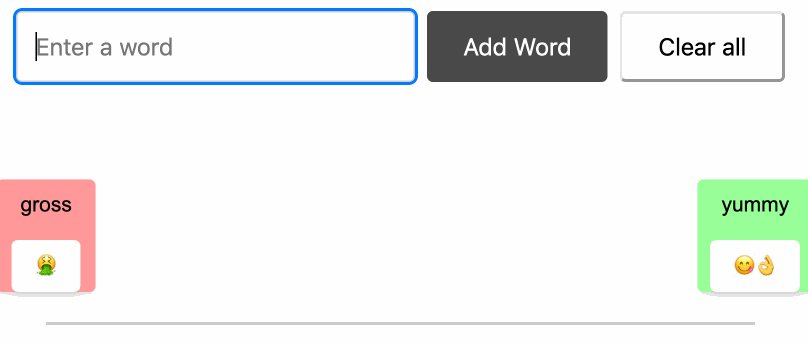“Lima beans” sounds gross to me. I tried it once, a small bite, blegh! 🤮
“Butter beans” sounds delicious. I bought a can from TJ’s, prepared it all nice, creamy, smooth, delicious! 😋👌
Later I discover: they are the same thing?? 😱
Have I been manipulated?? Was this all just a marketing trick, a rebrand?? Must I now revert to the truth, where I hate the thing that I now love?
The answer in this case is: no. This is not manipulation. I actually like the bean. I was unable to enjoy it because the “original frame” made it sound bad. The “new frame” allowed me to enjoy it.
Q: Which frame is the true frame?
A: The 2nd one.
Why? Because it matches reality better. “lima bean” still sounds kind of gross, but the bean is not gross. I enjoy the bean. So, “butter bean” as a frame better matches my experience of reality.
It would be manipulation if you took something I didn’t like, give it a beautiful name, I try it, I realize I hate it, but you’ve already gotten my money. You win, I lose.
“Wouldn’t it be better if we could just look at reality objectively?”
Sure! What would you like to call the bean so that your customers can choose for themselves? What can we call it that will not manipulate anyone’s perception?
What if we just choose the most neutral, descriptive term. What if we just say “legume #412”
Let’s check with the market. How do humans feel when they read this neutral, descriptive term?

“butter bean” feels yummier than “lima bean” to most humans, as predicted. But apparently “legume” is way worse1!
My dad once asked me:
“what’s the point of reading fiction?”
“If there’s anything useful in there, you can read it in a non-fiction book, right?”
I couldn’t answer that question, and I stopped reading fiction for a decade.
But I get it now. Non-fiction is trying to speak in a “neutral, objective frame”. But we know there is no such thing, it’s really just a specific frame.
Fiction crafts a specific frame, and walks you through it to surface a truth.
“non-fiction” would be writing a book about how lima beans are actually quite delicious, despite their gross sounding name (this is using “the gross frame”)
“fiction” would be writing a book about this new butter bean thing and what you can do with it (a new, clean frame reveals the truth more clearly)
I no longer think it makes sense to separate books by “fiction” and “non-fiction”23. Every book has a frame. If anything, “non-fiction” does a sneaky thing where it is presented in a frame that says “I am not a frame, I am the truth!” but it only feels that way because it’s your native language. And as I reflect in “Is it enlightenment or psychosis?” - it’s important to learn the difference between whether you disagree with someone because what they’re saying is false, vs when they are speaking a different language.
If people end up trying it anyway, in spite of it sounding gross (not neutral), then people will talk about how underrated this is. If it eventually spreads, then, get this: the word ITSELF changes meaning!! Now someone with a new product they want to sell might call their thing “legume” to benefit from that association.
This is the reason we have trademarks, so you can’t associate yourself with a successful brand like Apple or Google & trick the consumer. But there is no regulatory body that can top-down enforce honest vs manipulative use of language. The only defense we have is raising our own epistemology, discernment, our contact with reality (to test for the truth), and our trust network where we propagate that truth.
If you are a software engineer, the correct way for you to understand fiction is that it is pseudocode. If you want to document an algorithm to someone, do you point to a specific implementation, or to a general pseudocode?
You understand in what way the pseudocode is “more true”, it is the essence of the algorithm. You know that there are implementation details that can change, that don’t matter, and other parts of the algorithm are core and invariant. Showing pseudocode is a way to abstract away the details that don’t matter to reveal the core. Fiction is a way to abstract the implementation details. If you understand a piece of fiction, you can “implement it” or see examples of it inside of other stories or life experiences.
Consider also why our justice system does NOT present truth to a judge in a “neutral objective frame”. Instead, we present it in the MOST biased way possible (two lawyers each fully biased to their side).
Consider now how journalism that claims it is neutral & objective is playing a game of deception (or they are just not self-aware).




I think really prominent example of this is Nuclear War by Annie Jacobson. I myself did not read the full book, but watched book recall by Sean McClure (basically he retold the whole book in his own words from memory). In short, this book is telling second by second scenario of nuclear war enveloping. This is pure fiction as non of the events did happen, yet it teaches how the operations happen in such scenario, what protocols are in place, how decisions are made. I wholeheartedly agree that everything is a narrativr or a frame could be called, through which information is communicated.
Man, lots of pushback on this. I think there's something to it.
I'm thinking something like-- fiction doesn't function like non-fiction, even if they both are about altering the frame/attention of the reader, because one does x, and one does y, and these CAN overlap, but often don't.